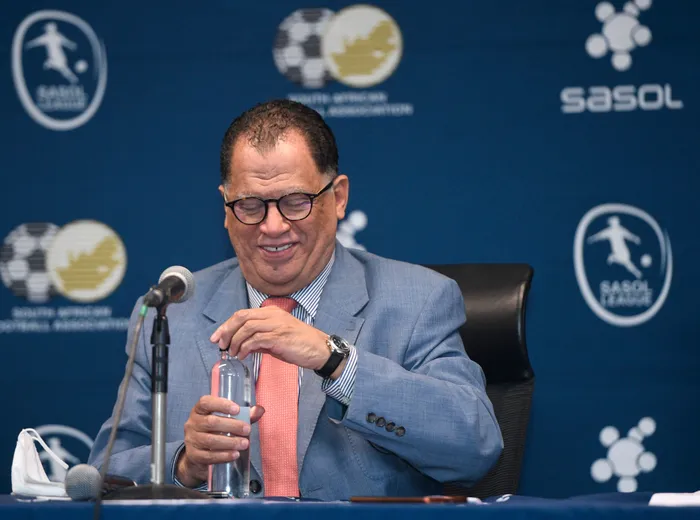
SAFA President Dr Danny Jordaan during the 2021 SASOL League National Championship Draw at SAFA House last November FILE - SAFA President Dr Danny Jordaan during the 2021 SASOL League National Championship Draw at SAFA House last November. Photo: Sydney Mahlangu/BackpagePix
Image: Backpagepix
Sasol has officially ended its 16-year partnership with the South African Football Association (SAFA), dealing a major blow to women’s football just days before Banyana Banyana begin their Women's Africa Cup of Nations (WAFCON) title defence.
The petroleum company, which has been a long-time sponsor of both the senior national women’s team and the Sasol League, confirmed the conclusion of their agreement, effective June 30, in a statement.
The announcement coincides with Banyana's preparation to depart for Morocco, where they have been drawn in Group C alongside Ghana, Mali, and Tanzania."
The reigning African champions will open their campaign against Ghana on July 7 at the Honneur Stadium in Oujda.
This setback compounds the challenges SAFA is already facing, following a recent dispute with players over unpaid appearance fees for three international friendly matches.
At one stage, members of the squad even threatened to boycott the tournament.
SAFA has since admitted that the delays were due to an administrative oversight and confirmed that the issue had been addressed, with assurances that future payments would be managed more efficiently.
Sasol’s departure impacts more than just the senior national team. The Sasol League, a crucial platform in developing women’s football at the grassroots level, also loses its name sponsor and a key supporter of its national structure.
In their official statement, Sasol said:
“Sasol can confirm that our sponsorship agreement with SAFA, which encompassed support for the senior women’s team, Banyana Banyana, as well as the Sasol League, officially concluded on 30 June 2025.
“We take pride in our 16-year partnership with SAFA and the substantial contributions we have made to enhance the growth and visibility of women’s football in South Africa. Through this collaboration, we have facilitated pathways for aspiring female footballers from grassroots levels to the international arena.”
The company also indicated that discussions for a possible renewal may still take place, but for now, the rights to associate with Banyana Banyana and the Sasol League no longer exist.
“We await feedback from SAFA regarding the terms of a potential renewal. Until an agreement is finalised, Sasol no longer possesses the rights to associate with Banyana Banyana and the Sasol League. Sasol continues to recognise the significant role that women’s sport plays in fostering empowerment and inclusion in South Africa.”
The conclusion of the partnership now raises questions around funding and sustainability, especially at a time when Banyana Banyana are expected to carry the nation’s hopes on the continental stage.
As WAFCON 2025 approaches, Desiree Ellis’s squad will not only be defending their crown on the field but also navigating a critical period of transition off it.
Related Topics: